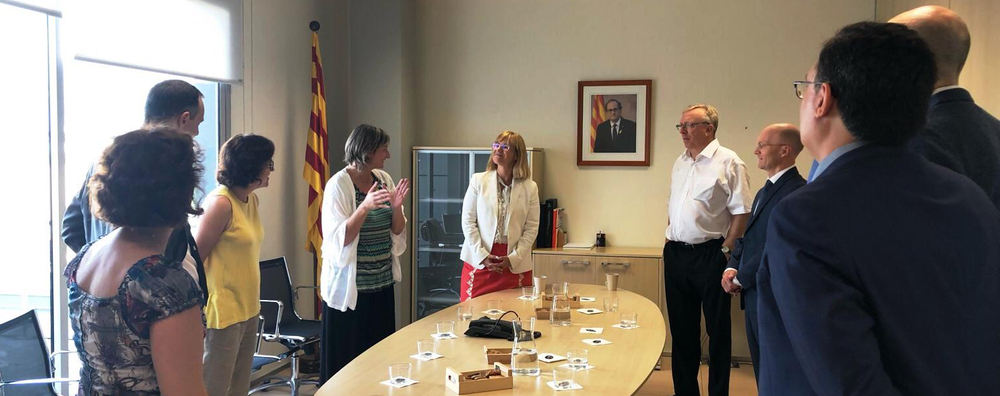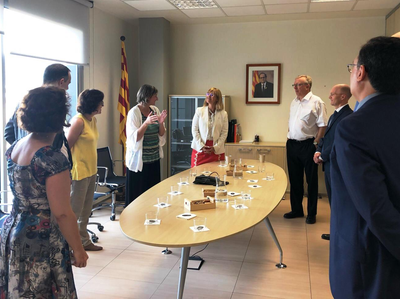- The delegation from the World Health Organisation will help Catalonia redefine its health plan, which has guided the Catalan government’s health policy since it was introduced 30 years ago
- The delegation will visit health centres throughout Catalonia and meet with professionals to learn why Catalonia has been a pioneer in health planning for three decades

A dozen experts from the World Health Organisation (WHO) are visiting Catalonia this week with two objectives related to the Catalan Health Plan, which was first introduced 30 years ago and is the key instrument in the Catalan government’s health policy.
The first goal is to learn first-hand about the impact – on both the health system and the health of citizens – of applying the seven health plans developed since the early 1990s, which have made Catalonia a pioneering region in continuous health planning over a period of three decades.
The second is to provide support in the process of redefining the plan for the coming years in a way that maintains the defining features of the Catalan public health system (universal, equitable, sustainable, etc.) in the face of healthcare, social and demographic challenges (such as chronic care and mental health) and addresses other cross-cutting issues, such as healthcare funding and the role of ICT.
The Ministry of Health recognises the need for the new health plan to evolve and incorporate elements that make it even more open, flexible and dynamic. Public participation in its development will play a key role in making the document one that pulls together policies linked to improving the health and well-being of the population. It is also essential that the future health plan involves the Catalan government, that health professionals are made aware of it, that it is aligned with other health system plans and programmes, and that it can be evaluated in terms of health outcomes. It should also reflect the Sustainable Development Goals defined by the United Nations.
Eminent experts, visits and meetings
The delegation of experts welcomed today by the Minister of Health, Alba Vergés includes Tamas Evetovits, head of WHO’s Barcelona office for strengthening health systems and an expert on health financing; Anthony Kessel, an expert on public health services and director of Global Public Health (UK); Isabel Yordi, programme manager for gender and human rights at WHO’s Europe Regional Office; and Nigel Edwards, chief executive at the Nuffield Trust (UK) and an expert on health systems.
Activities carried out by the delegation will include a plenary meeting, visits to health centres throughout Catalonia and individual interviews with professionals working in various areas of the Catalan health system. The results of the qualitative assessment will be presented in a final report that will bring to a conclusion nearly nine months of work and contacts between the Ministry of Health and the WHO.


